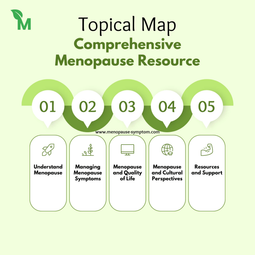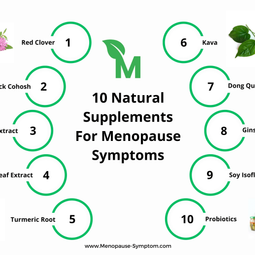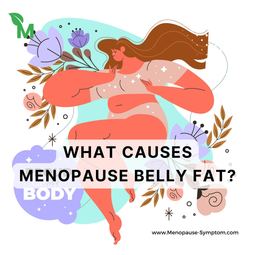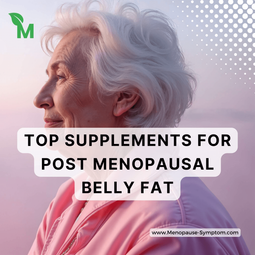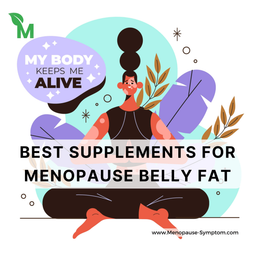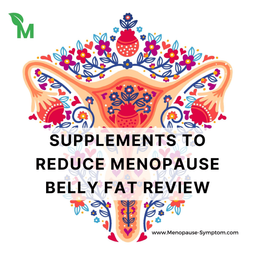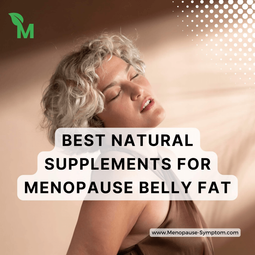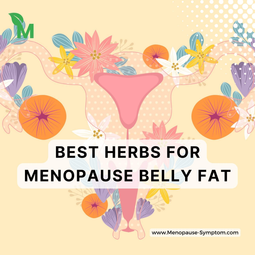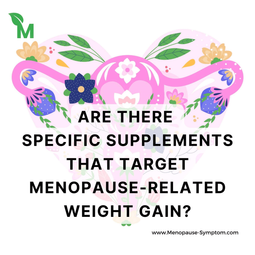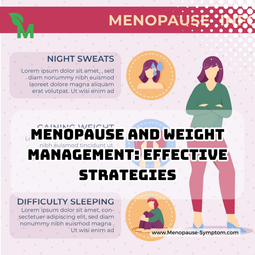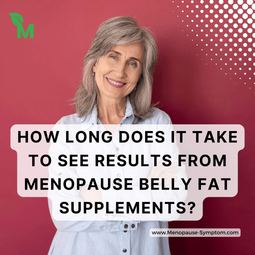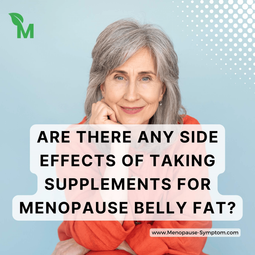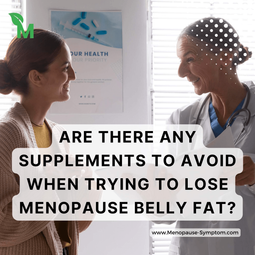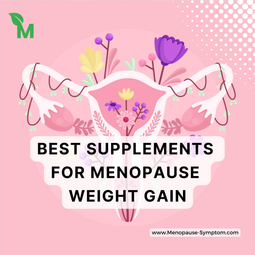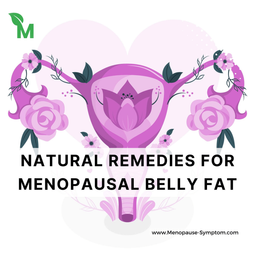The Menopause Conundrum: Why Belly Fat Becomes a Concern
As women enter menopause, many find themselves grappling with an unwelcome change: the accumulation of stubborn belly fat. This sudden shift in body composition can be frustrating and concerning, especially for those who have maintained a healthy weight throughout their lives. But why does this happen, and more importantly, what can be done about it?
Menopause marks a significant transition in a woman's life, characterized by hormonal changes that can have far-reaching effects on the body. One of the most noticeable impacts is the tendency to gain weight, particularly around the midsection. This isn't just a cosmetic issue; excess belly fat has been linked to various health concerns, including increased risks of heart disease, diabetes, and certain cancers.
The good news is that there are ways to combat this menopausal belly fat, and supplements can play a crucial role in this battle. In this comprehensive guide, we'll explore the most effective supplements for menopause belly fat, backed by scientific research and real-world results.
Understanding the Root Cause: Hormonal Imbalance
The Estrogen-Fat Connection
To effectively address menopause belly fat, it's essential to understand its primary cause: hormonal imbalance. As estrogen levels decline during menopause, the body's fat distribution patterns change. Fat that was once predominantly stored in the hips and thighs begins to migrate to the abdominal area.
This shift isn't just about appearance. Visceral fat, the type that accumulates around the organs in the belly, is metabolically active and can lead to inflammation and insulin resistance. This, in turn, can make it even harder to lose weight and maintain overall health.
The Role of Other Hormones
While estrogen is a key player, other hormones also contribute to the menopause belly fat equation. Cortisol, the stress hormone, tends to increase during menopause, further promoting fat storage in the abdominal area. Additionally, changes in insulin sensitivity can make it easier for the body to store fat and harder to burn it for energy.
Understanding these hormonal changes is crucial because it helps us target our approach to supplements. The most effective supplements for menopause belly fat will work to address these hormonal imbalances and support the body's natural fat-burning processes.
Top Supplements for Combating Menopause Belly Fat
1. Omega-3 Fatty Acids: The Anti-Inflammatory Powerhouse
Omega-3 fatty acids, particularly EPA and DHA found in fish oil, have shown promising results in reducing menopause-related weight gain and belly fat. These essential fats work by:
Reducing inflammation in the body
Improving insulin sensitivity
Supporting healthy metabolism
Studies have shown that women who increase their intake of omega-3s experience less weight gain during menopause. Moreover, these fatty acids can help reduce the risk of heart disease, which is especially important for menopausal women.
"Omega-3 supplementation can be a game-changer for menopausal women struggling with weight gain. It's not just about losing fat; it's about improving overall health." - Dr. Sarah Johnson, Endocrinologist
Recommended dosage: 1000-2000 mg daily of combined EPA and DHA. Always consult with your healthcare provider before starting any new supplement regimen.
2. Vitamin D: The Sunshine Vitamin for Weight Management
Vitamin D deficiency is common among menopausal women and has been linked to increased belly fat. Supplementing with vitamin D can:
Enhance calcium absorption, supporting bone health
Improve insulin sensitivity
Boost metabolism
Research has shown that women with adequate vitamin D levels tend to have less visceral fat. Additionally, vitamin D supplementation can help alleviate other menopausal symptoms like mood swings and fatigue.
Recommended dosage: 1000-2000 IU daily, but levels should be monitored through blood tests to ensure optimal supplementation.
3. Probiotics: Balancing Gut Health for Better Weight Management
The gut microbiome plays a crucial role in weight management, and its balance can be disrupted during menopause. Probiotic supplements can help by:
Promoting a healthy gut flora
Reducing inflammation
Improving metabolism and fat burning
Studies have shown that certain strains of probiotics, particularly Lactobacillus and Bifidobacterium, can help reduce body weight and belly fat in menopausal women.
Recommended dosage: Look for a high-quality probiotic supplement with at least 1 billion CFUs (colony-forming units) per serving, containing a mix of beneficial strains.
4. Green Tea Extract: Boosting Metabolism Naturally
Green tea has long been praised for its health benefits, and its extract can be particularly helpful for menopausal women struggling with belly fat. Green tea extract works by:
Increasing metabolism
Enhancing fat oxidation
Providing antioxidants that combat oxidative stress
The catechins in green tea, especially EGCG (epigallocatechin gallate), have been shown to target abdominal fat specifically. This makes green tea extract an excellent supplement for menopause belly fat.
Recommended dosage: 250-500 mg of green tea extract daily, standardized to contain 50% EGCG.
5. Magnesium: The Mineral for Hormonal Balance
Magnesium is a crucial mineral that plays a role in over 300 enzymatic reactions in the body. For menopausal women, magnesium supplementation can:
Help regulate cortisol levels
Improve insulin sensitivity
Support better sleep, which is crucial for weight management
Many women are deficient in magnesium, and this deficiency can exacerbate menopausal symptoms, including weight gain.
Recommended dosage: 300-400 mg daily, preferably in the form of magnesium glycinate for better absorption.
Lifestyle Factors: Maximizing the Benefits of Supplements
While supplements can be powerful allies in the fight against menopause belly fat, they work best when combined with a healthy lifestyle. Here are some key factors to consider:
Balanced Diet: The Foundation of Health
No supplement can replace a balanced, nutritious diet. Focus on:
Lean proteins to support muscle mass
Plenty of fruits and vegetables for fiber and nutrients
Whole grains for sustained energy
Healthy fats for hormone balance
Avoid processed foods, excessive sugar, and refined carbohydrates, which can contribute to inflammation and weight gain.
Regular Exercise: Keeping the Metabolism Fired Up
Exercise is crucial for managing weight during menopause. Aim for a combination of:
Cardiovascular exercise for heart health and calorie burning
Strength training to build and maintain muscle mass
Flexibility exercises to maintain mobility and reduce stress
Even moderate exercise, like brisk walking for 30 minutes a day, can make a significant difference in managing menopause belly fat.
Stress Management: Keeping Cortisol in Check
Chronic stress can sabotage your efforts to lose belly fat. Incorporate stress-reduction techniques such as:
Meditation or mindfulness practices
Yoga or tai chi
Deep breathing exercises
Adequate sleep (aim for 7-9 hours per night)
Hydration: The Often Overlooked Factor
Proper hydration is essential for metabolism and overall health. Aim for at least 8 glasses of water a day, and consider herbal teas as a soothing, calorie-free alternative to sugary drinks.
The Importance of Personalization
It's crucial to remember that every woman's experience with menopause is unique. What works for one may not work for another. That's why it's essential to:
Consult with a healthcare provider before starting any new supplement regimen
Listen to your body and pay attention to how you feel
Be patient and consistent – results may take time
Consider hormone testing to get a clear picture of your individual needs
Potential Risks and Considerations
While supplements can be beneficial, they're not without potential risks. Be aware of:
Interactions with medications you may be taking
Possible side effects, which can vary from person to person
Quality and purity of supplements – choose reputable brands
The importance of not exceeding recommended dosages
Success Stories: Real Women, Real Results
To illustrate the potential of supplements for menopause belly fat, let's look at a few success stories:
"I struggled with weight gain for years after entering menopause. After incorporating omega-3s and vitamin D into my routine, along with regular exercise, I finally started seeing results. It wasn't overnight, but after a few months, I noticed a significant reduction in my belly fat." - Linda, 56
"Green tea extract and probiotics made a huge difference for me. Not only did I lose some of the stubborn belly fat, but I also felt more energetic and less bloated. It's been a game-changer for my overall well-being." - Maria, 52
These stories highlight the potential of supplements when used as part of a comprehensive approach to health and wellness during menopause.
Looking to the Future: Emerging Research and Trends
The field of menopausal health is constantly evolving, with new research shedding light on potential treatments and supplements. Some areas to watch include:
Phytoestrogens and their role in hormone balance
Adaptogenic herbs for stress management and weight control
Personalized nutrition based on genetic testing
The potential of CBD for menopausal symptom relief
As research progresses, we may see even more targeted and effective supplements for menopause belly fat emerge.
Conclusion: A Holistic Approach to Menopausal Health
Dealing with menopause belly fat can be challenging, but it's far from impossible. By combining effective supplements with a healthy lifestyle, you can take control of your health and well-being during this transitional period.
Remember, the key to success lies in:
Understanding the underlying causes of menopause belly fat
Choosing the right supplements based on your individual needs
Adopting a holistic approach that includes diet, exercise, and stress management
Being patient and consistent with your efforts
Staying informed about new developments in menopausal health
By taking these steps and working closely with your healthcare provider, you can navigate the challenges of menopause with confidence and emerge healthier and happier on the other side.
Menopause is not just an ending; it's also a beginning. With the right tools and mindset, you can make this new chapter of your life one of vitality, wellness, and self-discovery. The journey to managing menopause belly fat may not always be easy, but with persistence and the right supplements, it's a journey that can lead to improved health, increased confidence, and a renewed sense of well-being.
Source: Team MPS compiled, analyzed and wrote. Please dont reup without source of us. Many thanks.
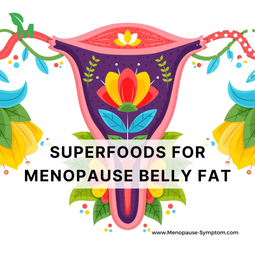
Superfoods For Menopause Belly Fat
Invalid Date

Perimenopause Belly Fat Buster Trick
Invalid Date

How Can I Reduce Menopause Belly Fat Naturally?
Invalid Date

Best Supplements For Perimenopause Belly Fat
Invalid Date

Best Supplements For Menopause Belly Fat In UK
Invalid Date
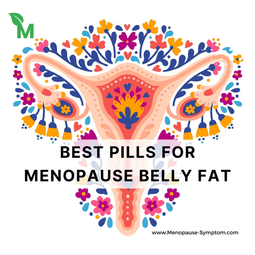
Best Pills For Menopause Belly Fat
Invalid Date
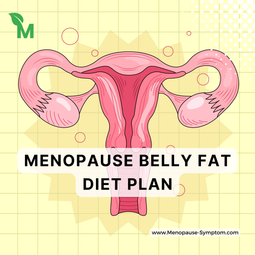
Menopause Belly Fat Diet Plan
11.04.2024

Perimenopause: A Perimenopause-Friendly Diet
Invalid Date

